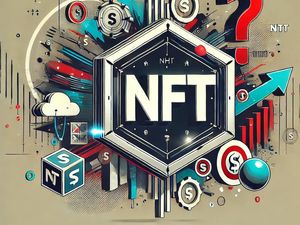Introduction #
Leverage in forex trading allows traders to control large positions with relatively small capital. While leverage can significantly amplify profits, it also increases risk, which is why different regions and regulatory bodies have imposed restrictions to protect retail traders from potential financial losses. In this article, we will explore leverage restrictions globally and how they differ across regions and regulatory bodies.
What is Leverage in Forex? #
Leverage is the ability to control a large position in the forex market with a smaller amount of actual capital. For instance, with a leverage ratio of 1:100, a trader can control $100,000 worth of a currency pair with just $1,000 in their trading account.
While high leverage can increase profits, it also magnifies losses, making it a double-edged sword. To mitigate this risk, financial regulators worldwide have introduced caps on leverage, particularly for retail traders.
Leverage Restrictions by Region #
1. Europe (ESMA Regulations) #
The European Securities and Markets Authority (ESMA) introduced strict leverage limits in 2018 as part of its efforts to protect retail traders. These rules apply across the European Union (EU) and European Economic Area (EEA) and are mandatory for all brokers regulated within these regions.
- Major Currency Pairs: 1:30
- Minor Currency Pairs, Gold: 1:20
- Commodities (except gold), Minor Indices: 1:10
- Major Stock Indices: 1:20
- Individual Stocks: 1:5
- Cryptocurrency CFDs: 1:2
These leverage caps are designed to limit the exposure of retail traders to excessive risk. Professional traders can apply for higher leverage levels if they meet specific requirements.
2. United Kingdom (FCA Regulations) #
Following its departure from the European Union, the UK’s Financial Conduct Authority (FCA) adopted the ESMA guidelines but continues to apply them independently. The FCA’s leverage restrictions are identical to those of ESMA.
- Major Currency Pairs: 1:30
- Minor Currency Pairs, Gold: 1:20
- Commodities (except gold): 1:10
- Indices: 1:20
- Stocks: 1:5
- Cryptocurrency CFDs: 1:2
3. Australia (ASIC Regulations) #
The Australian Securities and Investments Commission (ASIC) implemented new leverage limits for retail traders in March 2021, aligning Australia with other major regulatory regions.
- Major Currency Pairs: 1:30
- Minor Currency Pairs, Gold: 1:20
- Commodities (except gold): 1:10
- Indices: 1:10
- Stocks: 1:5
- Cryptocurrency CFDs: 1:2
4. United States (CFTC/NFA Regulations) #
The United States has some of the strictest leverage limits in the world, enforced by the Commodity Futures Trading Commission (CFTC) and the National Futures Association (NFA).
- All Currency Pairs: 1:50
- Commodities and Indices: 1:10
- Stocks: Not applicable (CFDs are prohibited in the US)
- Cryptocurrency CFDs: Not applicable (CFDs are prohibited in the US)
5. Japan (FSA Regulations) #
Japan’s Financial Services Agency (FSA) limits leverage more stringently than most other regions.
- Major and Minor Currency Pairs: 1:25
- Commodities and Indices: Varies by product
- Stocks: Varies by product
- Cryptocurrency CFDs: 1:2
6. South Africa (FSCA Regulations) #
South Africa’s Financial Sector Conduct Authority (FSCA) allows brokers to offer higher leverage compared to regions like Europe or the US.
- Major and Minor Currency Pairs: Up to 1:2000
- Commodities, Metals, Indices: Up to 1:500
- Cryptocurrency CFDs: 1:2
We have a detailed guide on Forex Trading in South Africa that you may find helpful.
7. Middle East (Offshore Brokers) #
Many offshore brokers serving clients in the Middle East offer extremely high leverage levels, often up to 1:3000.
- Major and Minor Currency Pairs: Up to 1:3000
- Commodities, Metals, Indices: Varies by broker
- Cryptocurrency CFDs: 1:2 to 1:10
Also, check out our guide on United Arab Emirates for more information on trading in the region.
Why Are Leverage Restrictions Important? #
The purpose of leverage restrictions is to protect retail traders from excessive losses. High leverage increases the risk of margin calls and account liquidation, especially in volatile markets like forex and cryptocurrencies.
How Traders Can Adjust to Leverage Restrictions #
Focus on Risk Management #
Proper risk management becomes even more critical when leverage is limited. Use stop-loss orders, diversify your trades, and avoid over-leveraging your accounts.
Enhance Technical and Fundamental Analysis #
With lower leverage, improving market analysis skills can help maximize trade efficiency.
Consider Professional Status #
Professional traders in some regions can apply for higher leverage if they meet criteria like trading experience and a strong financial portfolio.
Choose Your Broker Carefully #
Selecting a broker with the right regulatory framework and a solid reputation is essential. Consider brokers that offer tailored leverage options and comprehensive risk management tools.
Understanding these limits and adjusting your trading strategy accordingly is key to long-term success in forex trading. Always trade responsibly and use leverage wisely to enhance your trading strategy, not to take on excessive risk.






